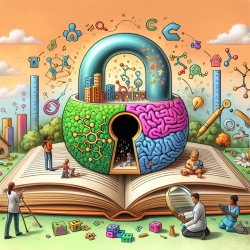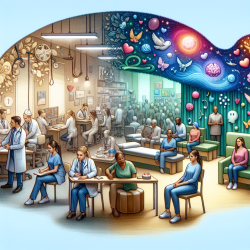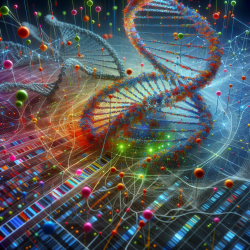Introduction
In the realm of psychiatric disorders, catatonia presents a complex and multifaceted challenge. This syndrome, notable for its diverse symptoms, can often be misunderstood or misdiagnosed. The recent case report titled A unique presentation of echo phenomena in a patient with catatonia: a case report and literature review offers valuable insights into the nuanced presentation of echo phenomena in catatonia. Understanding these phenomena can significantly enhance the diagnostic and therapeutic approaches employed by practitioners.
Understanding Echo Phenomena
Echo phenomena, traditionally recognized as echolalia and echopraxia, involve the involuntary repetition of another's speech or movements. However, the case report highlights a broader spectrum of echo phenomena, including complex behaviors such as echoplasia, echographia, and echolalioplasia. These phenomena are not confined to the same modality as the stimulus, indicating a need for practitioners to adopt a more flexible diagnostic framework.
Case Report Insights
The case report discusses a 61-year-old woman with a history of schizoaffective disorder, who exhibited unique echo phenomena during a catatonic episode. Her experience of auditory hallucinations while reading text—a form of hallucinatory echolalia—demonstrates the diverse manifestations of echo phenomena. This case underscores the importance of recognizing novel presentations of catatonia, which can easily be misinterpreted as symptoms of other psychiatric disorders.
Implications for Practice
For practitioners, the insights from this case report emphasize the importance of:
- Adopting a broadened conceptualization of echo phenomena to improve diagnosis and treatment of catatonia.
- Recognizing the potential for novel echo phenomena in various psychiatric disorders, including schizophrenia and autism spectrum disorder.
- Utilizing flexible diagnostic frameworks that accommodate unique presentations of catatonia.
These strategies can lead to more accurate diagnoses and effective treatment plans, ultimately improving patient outcomes.
Encouraging Further Research
The case report also highlights the need for further research into the etiology and presentation of echo phenomena. By exploring these phenomena across different psychiatric disorders, researchers can contribute to a deeper understanding of catatonia and its treatment.
Conclusion
The case report A unique presentation of echo phenomena in a patient with catatonia: a case report and literature review offers valuable insights into the diverse manifestations of echo phenomena in catatonia. By embracing a broader understanding of these phenomena, practitioners can enhance their diagnostic and therapeutic approaches, ultimately leading to better outcomes for patients.










